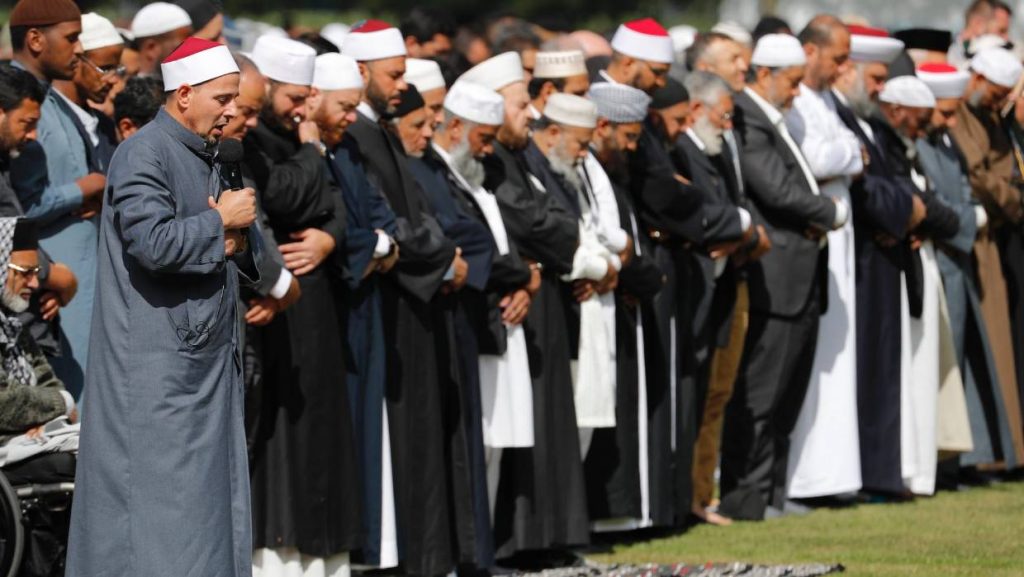Thousands of New Zealand Muslims will mark the first anniversary of Christchurch terrorist shooting with prayers and national remembrance service.
The prayer service is planned at the Al Noor and Linwood Mosque communities on March 13 at Horncastle Arena.
The venue was picked to make security easier and accommodate an influx of local, national and international visitors, according to Linwood Mosque general secretary and Islamic center trustee Faisal Sayed.
Muslims usually do not mark anniversaries of death; they considered their loved one to have gone on to another life beyond death, Muslim Association of Canterbury spokesman Tony Green said, Stuff reported.
“So, you’re not mourning, you are saying they have gone on and we will, in our turn, follow them,” Green said.
Green said Islam did not forbid followers from mourning “because we know we need to honor those people who have been killed”, but it emphasized the need to create a positive legacy from the loss.
Terrorist Brenton Harrison Tarrant killed 51 Muslim worshippers in March-15 attacks as he targeted Al Noor and Linwood mosques.
Remembrance Service
On the other hand, Al Noor Imam Gamal Fouda called for a national remembrance service to be held every year on March 15.
He told the NZ Herald the attacks were “crimes against humanity” and warranted an exception to normal Islamic practice.

“Anywhere in New Zealand, if Muslims want to apply the normal rule, they can apply it outside of Christchurch – but in here, it’s an exception – because we are here to say that the voice of love should be louder than the voice of evil.”
Christchurch is the largest city in the South Island of New Zealand and the seat of the Canterbury Region.
It is home to 404,500 residents, making it New Zealand’s 3rd most populous city behind Auckland and Wellington.
One percent of the total New Zealand population adheres to Islam, according to several sources. Small numbers of Muslim immigrants from South Asia and Eastern Europe settled in New Zealand from the early 1900s until the 1960s.
Large-scale Muslim immigration began in the 1970s with the arrival of Fiji Indians, followed in the 1990s by refugees from various war-torn countries. The first Islamic center opened in 1959 and there are now several mosques and two Islamic schools.

